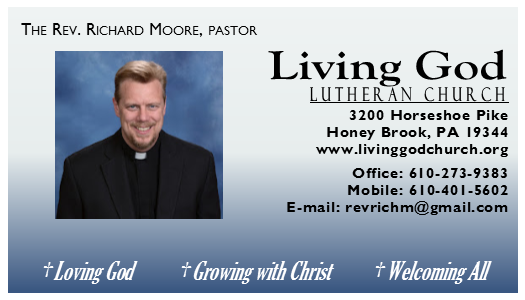The Cheerful Giver
2 Corinthians 9:6-8
[6] The point is this: whoever sows sparingly will also reap sparingly, and whoever sows bountifully will also reap bountifully. [7] Each one must give as he has decided in his heart, not reluctantly or under compulsion, for God loves a cheerful giver. [8] And God is able to make all grace abound to you, so that having all sufficiency in all things at all times, you may abound in every good work.
Did you know that churches haven't always "passed the plate" as an act of worship?
It's true. As a matter of fact, until the the early 19th century church finances were sustained by a religious tax on citizens. Imagine looking at your pay stub and seeing a box alongside local, state and federal taxes labeled "Religious Tax" and finding 10% of your gross income taken out in order to fund your church. Well, that's how it was done. During colonization of America the colonists brought with them new ideas about freedom and government, but new ideas take time to grow. In the mean time the church's were established and maintained according to the same systems of organization and funding that were used back in Europe. Even after the colonies broke free from England in the late 18th century, it still took decades of preaching and teaching to get the church to break free from the European process of taxing citizens to fund the church.
Somewhere around the 1830s churches began the practice of voluntary tithing as we know it today. But, early on they still didn't "pass the plates". One of the early ways in which churches attempted to secure voluntary funds for their ministry was to charge a fee for the use of pews. Believe it or not, the front pews were the most expensive back then. Just like the sale of tickets to an event, the churches began charging a price for seating. If you did not have enough money for a seat you were permitted to stand in the back or, in some churches, in the balcony. In some churches people were permitted to actually buy the physical pew. These were always in the front and when this happened the owners would install a section of seating that would be cordoned off from the others with wooden railing and panels. Ever wonder where the idea of "box seats" came from? Well, now you know.
As time went on, and as pastors continued to teach and preach about good stewardship and tithing, the practice of selling seats began to lose favor. Into its place came the practice of passing the plates. The late 19th and early 20th century saw the church form a more sound theology of the practice of receiving an offering as an act of worship. Bolstered by Scripture like that which is quoted above, Christians began to realize the gift of grace in their free will offerings to the church.
I think its important to remember this history of voluntary giving to fund the church's mission and existence. Often parishioners complain that the church is talking about money too often. Well...consider the alternative. Remember, there was a time in the not-so-distant past when parishioners never heard about the church's need to bay the bills. That's because they were being taxed.
Today, we are free to provide for our church's ministry as much or as little as we are inspired to do so. But this should not make us want to avoid discussion about money in church. No, this should make us want to talk about money all the more, because the financial management of the church is no longer in the hands of the state or higher church authority, it has been entrusted to us. Imagine what your household finances would be like if you ignored them. Disaster, right?! For the first time in history, relatively speaking, we have been given the freedom to fund our church without reluctance or compulsion, just as St. Paul taught the church in Corinth. This is indeed cause for cheerful giving. What joy, pride, and cheer there is in being able to step back from our church and its ministry and know that together we answered God's call and funded it fully and completely---with a surplus to be used for developing new ministry ideas for the future.
For years Living God Lutheran has been operating with a deficit...year after year of coming up short. With this year's campaign to Bridge the Gap, I am committed to putting those days behind us, and so far 25% of our congregation has committed themselves to this goal along with me. Join us! If you haven't filled out a "Bridge the Gap" pledge card yet, please do so.
In Luke 12:48 Jesus says, "To those whom much has been given, much will be expected." We have been given the freedom to fund our church and mission without being compelled by taxation from the state or church authorities. We have been entrusted with this relatively young idea of funding our ministry completely on voluntary funding. There has never been a better opportunity for us to embrace St. Paul's notion of cheerful giving than this. We are free to provide a church for ourselves and for the world around us. What a gift we have been given. What a gift, which God has entrusted to us.
Please consider making a donation to support this ministry.
Click HERE to learn more.
Thanks!

